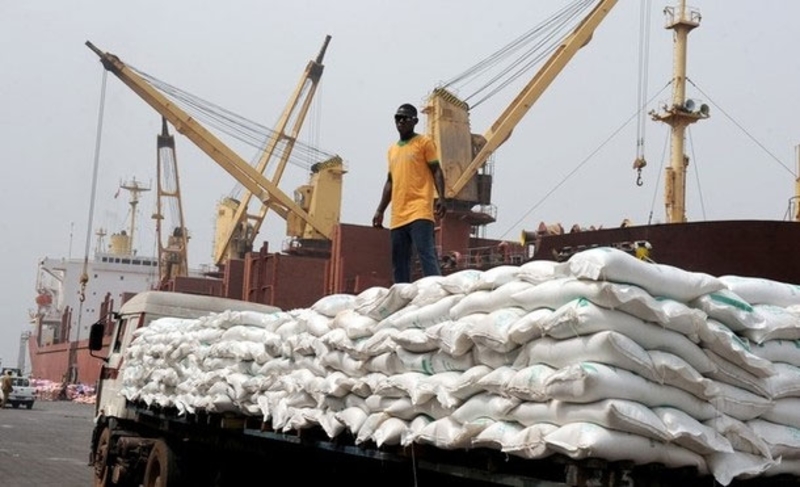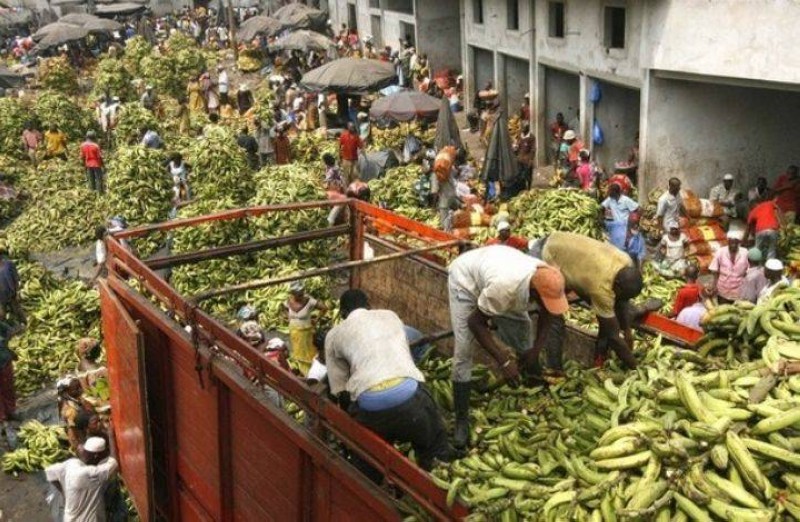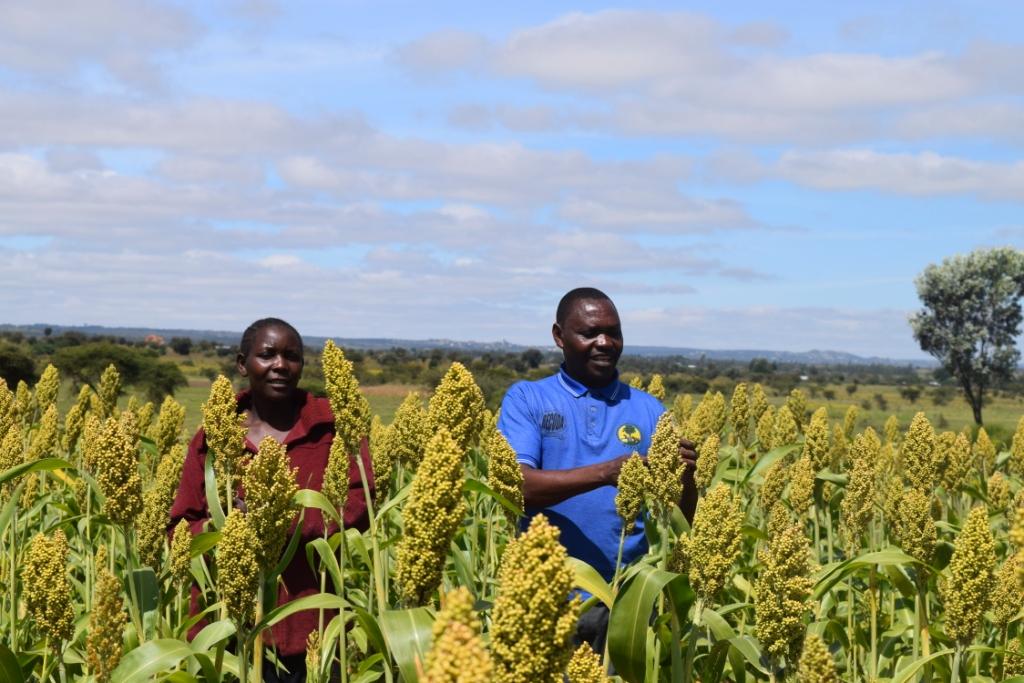When the Covid 19 crisis exposes the limits of conventional food systems based on the international market
The Coronavirus pandemic has been shaking the world since its appearance in China in December 2019 and its global spread from February 2020.
The coronavirus pandemic has been shaking the world since its appearance in China in December 2019 and its global spread from February 2020.
Africa, initially spared, reported its first cases in February 2020.
Although far from the hecatomb predicted or feared by the WHO, which expected several million deaths by mid-April, the number of cases on the African continent has continued to rise since then.
Since May 22, 2020, Africa has passed the 100,000 case mark and as of June 6, 177,953 confirmed cases, 4,936 deaths and 78,834 cured (African Centre for Disease Control and Prevention – Africa CDC)[1]. At the same date, the countries of the Inades-Formation network officially counted 20,709 confirmed cases with more than 7,000 cases in Cameroon, more than 3,000 cases in Côte d’Ivoire and DR Congo, and more than 2,000 cases in Kenya[2].
The collateral damage of the disease is feared on the continent, in particular an increased impoverishment of the population and a food crisis for this continent already weakened by conflicts and refugee movements, climate change, economic crises, the persistence of other diseases such as malaria, etc.
Several producer and development organisations such as CCFD Terre Solidaire[3] and OXFAM[4] have sounded the alarm. ROPPA has set up a monitoring committee[5] to deal with the crises affecting West African Family Farming and the systemic crisis of COVID19 , and FAO has produced various briefing notes and guidelines[6] for a set of tools to support policy analysis and assess the impact of the COVID19 pandemic on food and agriculture, value chains, food prices, food security worldwide .
The effects of this health crisis are undeniable on the world economy but also on the living standards of the most vulnerable populations and food security.
The risk of food and agricultural inputs shortages in African states

In this globalized economy where food security is based on imports, it is easy to perceive the dramatic consequences that the Covid 19 pandemic could have on food security at the global level and more specifically on African States.
Despite their agricultural potential, most African countries depend on imports for their food security. For example, in some West African countries 40% of the rice consumed is imported, to give just one example.
In 2017, Africa’s food import bill stood at US$35 million according to the AfDB President and forecasts indicate that imports will continue to rise.
However, with the advent of this crisis, which has just begun in Asia, states have taken security measures, the most important of which is the closure of air, land and sea borders. Anything that resulted in lower imports. Moreover, if the countries exporting cereals and staple foods, which are also affected by the pandemic, were to suddenly stop production, all countries dependent on imports would be unable to feed their populations.
Although the food stocks available at the global level are sufficient to cover demand until the next harvest, the persistence of the disease and the maintenance of protective measures could jeopardise the availability or accessibility of all such stocks and prevent their replenishment. This would result in food shortages for the people who depend on it.
Moreover, producers accompanied by Inades-Formation in various countries have expressed their concerns about the availability of seeds and other agricultural inputs for the upcoming growing seasons that are already close, because agriculture in these countries is largely dependent on these imported agricultural inputs.
How then can we guarantee the next harvests, if there are neither seeds available nor fertilizers, the misuse of which has degraded soil fertility, creating a vicious circle?
Reflection on food systems in Africa becomes indispensable.
A drop in farmers’ and governments’ incomes
Very few agricultural products are processed locally in Africa. More seriously, most states, particularly those in West Africa, have an agriculture based on monoculture cash crops for export.
The risk of seeing demand in the recipient countries for these products fall with the Covid 19 crisis is not far off. African economies would be undermined by the loss of resources to guarantee mass imports of essential food products. Funding for future crop years will be similarly unlikely/problematic. This of course will affect farmers’ incomes.
The difficult flow of available food: the disruption of local supply chains/ the breakdown of local supply chains

To limit the spread of the disease within countries, African states were quick to take security measures to restrict movement. Some, far more than others, have taken drastic measures for periods that vary from country to country: curfews, market closures, shop and school closures, isolation and quarantine of the most affected cities, etc.
As a result of the restrictions on movement, producers, mainly those producing perishable foodstuffs, found fewer buyers and encountered difficulties in selling their products. Only a handful of buyers reach the producers to buy back their merchandise.
It was also difficult to transport food produced in rural areas to the markets due to the lack of vehicles for transporting goods and the closure of markets, which increased the cost of transporting food to urban areas and, in turn, the rotting of food that could not be sold.
All of this leads to a drop in producers’ income and could impinge on their ability to finance the next harvest.
Building sustainable food systems to achieve real food sovereignty in Africa

This pandemic at Covid 19 and its collateral effects on food security has shown the limits of conventional food systems and therefore the urgent need for States and particularly African States to develop sustainable food systems, such as systems based on family farming.
Systems based on the development of food based on sovereignty food (local food), the development of reproducible farmer seeds based on local knowledge, the development of sustainable value chains and short distribution channels.
This is the whole meaning of Inades-Formation’s fight which, since 2013, has taken a firm stand in favour of the food sovereignty of the people. Its commitment to promote food systems based on family farming in all African States, which implies the promotion of food for sovereignty, is a concrete expression of this commitment.
As moments of crisis are also opportunities to learn lessons and make commitments, it is crucial that African states invest in sustainable food and agricultural systems, with food sovereignty practices and policies as a guiding principle in :
- Supporting the support for the Family Farm Advisory Scheme to feed the towns and countryside,
- Encouraging the diversification of food sovereignty crops, agro-ecology and systems of resilience to climate change,
- Supporting the development of local seeds and building up seed banks in the different localities ;
- Reinforcing infrastructure, transport circuits and distribution of agricultural products from villages to cities with incentives from the local market ;
- Developing storage and processing infrastructure at local level to create jobs
- Reinforcing and bringing the mechanization offers closer to production activities, especially in the country’s major production centres ;
- Allocating significant funding to agriculture and more particularly to the food and vegetable sector including the value-added chain ;
- Supporting the integration and professionalisation of women and young people in the agricultural and food chain
These would be lasting solutions beyond the Covid 19 pandemic, the end of which is still uncertain despite the gradual lifting of barrier measures in several countries.
Inades-Formation
[1] https://africacdc.org/covid-19/
[2] https://www.jeuneafrique.com/910230/societe/coronavirus-en-afrique-une-carte-pour-suivre-au-jour-le-jour-lavancee-de-lepidemie/
[3] Covid-19 : 50 millions de personnes menacées par la faim en Afrique de l’Ouest – https://ccfd-terresolidaire.org/nos-combats/souverainete/crise-alimentaire/la-pandemie-de-6616
[4] Covid-19 : 50 millions de personnes menacées par la faim en Afrique de l’Ouest – https://www.oxfam.org/fr/communiques-presse/covid-19-50-millions-de-personnes-menacees-par-la-faim-en-afrique-de-louest
[5] https://www.roppa-afrique.org/IMG/pdf/roppa-a5-160420-1.pdf









